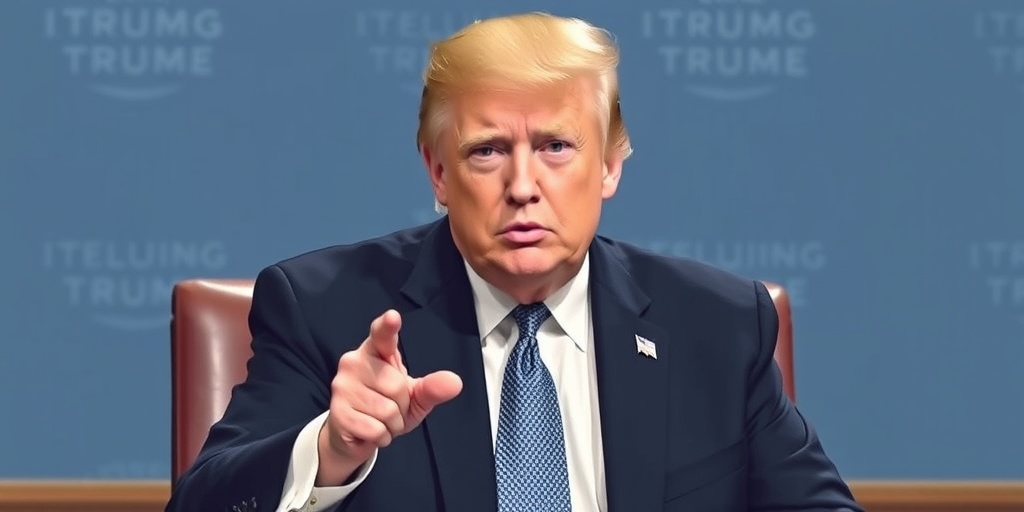Now Reading: Appeals Court Greenlights Trump’s Diversity Rule Amid D.E.I. Debate
-
01
Appeals Court Greenlights Trump’s Diversity Rule Amid D.E.I. Debate
Appeals Court Greenlights Trump’s Diversity Rule Amid D.E.I. Debate
Federal Court Upholds Trump Administration’s Diversity Initiative Crackdown
In a significant legal development on Friday, a federal appeals court unanimously affirmed the Trump administration’s aggressive stance to dismantle diversity, equity, and inclusion (DEI) programs within the federal government. This decision comes as a reversal of a lower court ruling in Maryland which had temporary halted the implementation of several executive orders signed by President Trump aimed at curbing such initiatives.
The ruling from the three-judge panel of the Fourth Circuit Court of Appeals, based in Richmond, Virginia, revealed a deep ideological divide among the judges regarding the nature of diversity as a value in American society. The court’s decision emphasizes that the Trump administration had sufficiently demonstrated the need for a stay on the lower court’s ruling by asserting that its orders are “of distinctly limited scope” and do not claim that all measures to promote diversity, equity, or inclusion are illegal.
Judge Adam B. Abelson, who presided over the lower court case, had argued that these executive orders represented a punitive measure against individuals for engaging in constitutionally protected speech. He expressed concern that the initiatives might chill the ability of federal employees to express their views on DEI programs. Despite these concerns, the appeals court ruled in favor of the Trump administration’s intent to revise the landscape of federal diversity initiatives.
President Trump’s administration has been noted for its fierce actions against diversity programs, with administration officials threatening federal employees with “adverse consequences” if they fail to report colleagues who insist on maintaining DEI practices contrary to the executive orders. This crackdown has been met with significant backlash from various sectors, including legal experts, civil rights advocates, and government employees expressing fears over the implications for freedom of speech and workplace inclusion.
Chief Judge Albert Diaz, appointed to the Fourth Circuit by President Barack Obama in 2010, was part of the panel that issued the ruling. While he acknowledged the necessity of the ruling in favor of the Trump administration, he did not shy away from contesting the broader narrative that denigrates efforts aimed at enhancing diversity, equity, and inclusion within federal institutions. In his concurring opinion, Judge Diaz stated, “People of good faith who work to promote diversity, equity, and inclusion deserve praise, not opprobrium.” He further elaborated that embracing true diversity in America acknowledges and respects the diverse identities of its citizens, and that fostering genuine equity opens opportunities for all.
Judge Diaz underscored the idea that policies promoting inclusivity cultivate an environment of respect and value for everyone involved. "What could be more American than that?" he rhetorically asked, emphasizing the foundational ethos of the nation in relation to social equity.
Contrasting Judge Diaz’s supportive stance was Judge Allison Jones Rushing, who was appointed by Trump during his presidency. In her concurring opinion, Judge Rushing strongly criticized Diaz’s comments, suggesting that personal views on executive actions should not influence judicial decisions. “Any individual judge’s view on whether certain executive action is good policy is not only irrelevant to fulfilling our duty to adjudicate cases and controversies according to the law, it is an impermissible consideration," wrote Judge Rushing. She stated that a judge’s personal opinion regarding the merit of DEI programs should not play any role in deciding legal matters.
Judge Pamela Harris, another appointee from the Obama administration, also concurred with the majority ruling but emphasized that her decision should not be misconstrued as an endorsement of the Trump administration’s attack on diversity initiatives. Her perspective highlighted the complexities and sensitivities surrounding the judicial review of policies with significant social implications.
The fragment of ideologically contrasting opinions within the Fourth Circuit highlights an ongoing national conversation regarding the administration’s policies affecting diversity programs. As the debate continues, the implications of this ruling will resonate across the federal workforce, potentially affecting how diversity and inclusion are approached in government spaces.
Moving forward, advocates for diversity, equity, and inclusion will likely contest this ruling, as it could set a precedent for future legal battles concerning the treatment and defense of DEI initiatives in public institutions. The ruling reflects not just a legal judgment but also a microcosm of the broader cultural and political tensions surrounding issues of race, identity, and equity in contemporary America.
Stay Informed With the Latest & Most Important News
Previous Post
Next Post
-
 01New technology breakthrough has everyone talking right now
01New technology breakthrough has everyone talking right now -
 02Unbelievable life hack everyone needs to try today
02Unbelievable life hack everyone needs to try today -
 03Fascinating discovery found buried deep beneath the ocean
03Fascinating discovery found buried deep beneath the ocean -
 04Man invents genius device that solves everyday problems
04Man invents genius device that solves everyday problems -
 05Shocking discovery that changes what we know forever
05Shocking discovery that changes what we know forever -
 06Internet goes wild over celebrity’s unexpected fashion choice
06Internet goes wild over celebrity’s unexpected fashion choice -
 07Rare animal sighting stuns scientists and wildlife lovers
07Rare animal sighting stuns scientists and wildlife lovers



















